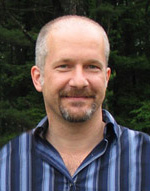The Dream Called Life
by
Pedro Calderon de la Barca

A dream it was in which I found myself.
And you that hail me now, then hailed me king,
In a brave palace that was all my own,
Within, and all without it, mine; until,
Drunk with excess of majesty and pride,
Methought I towered so big and swelled so wide
That of myself I burst the glittering bubble
Which my ambition had about me blown,
And all again was darkness. Such a dream
As this, in which I may be walking now,
Dispensing solemn justice to you shadows,
Who make believe to listen; but anon
Kings, princes, captains, warriors, plume and steel,
Aye, even with all your airy theatre,
May flit into the air you seem to rend
With acclamations, leaving me to wake
In the dark tower; or dreaming that I wake
From this that waking is; or this and that,
Both waking and both dreaming; such a doubt
Confounds and clouds our moral life about.
But whether wake or dreaming, this I know,
How dreamwise human glories come and go;
Whose momentary tenure not to break,
Walking as one who knows he soon may wake,
So fairly carry the full cup, so well
Disordered insolence and passion quell,
That there be nothing after to upbraid
Dreamer or doer in the part he played;
Whether tomorrow's dawn shall break the spell,
Or the last trumpet of the Eternal Day,
When dreaming, with the night, shall pass away.
The fundamental aim of Buddhism is an untangling of our fundamental self image from the many influences it is usually enmeshed in. Part of this is the illusory view we have of the world. Buddhism does not see the world itself as an illusion, but the emotions and concepts we hold which provoke our responses to the world are seen as the illusion. Therefore dreams are not thought of as being illusions, but depict the illusions of our everyday experience of life. The very nature of dreams are expressive of the complicated realm of fears, longings and mental concepts we are deeply enmeshed in. Nightmares especially show how deeply involved our waking self is with the internal world of passionate feelings and imagery.





